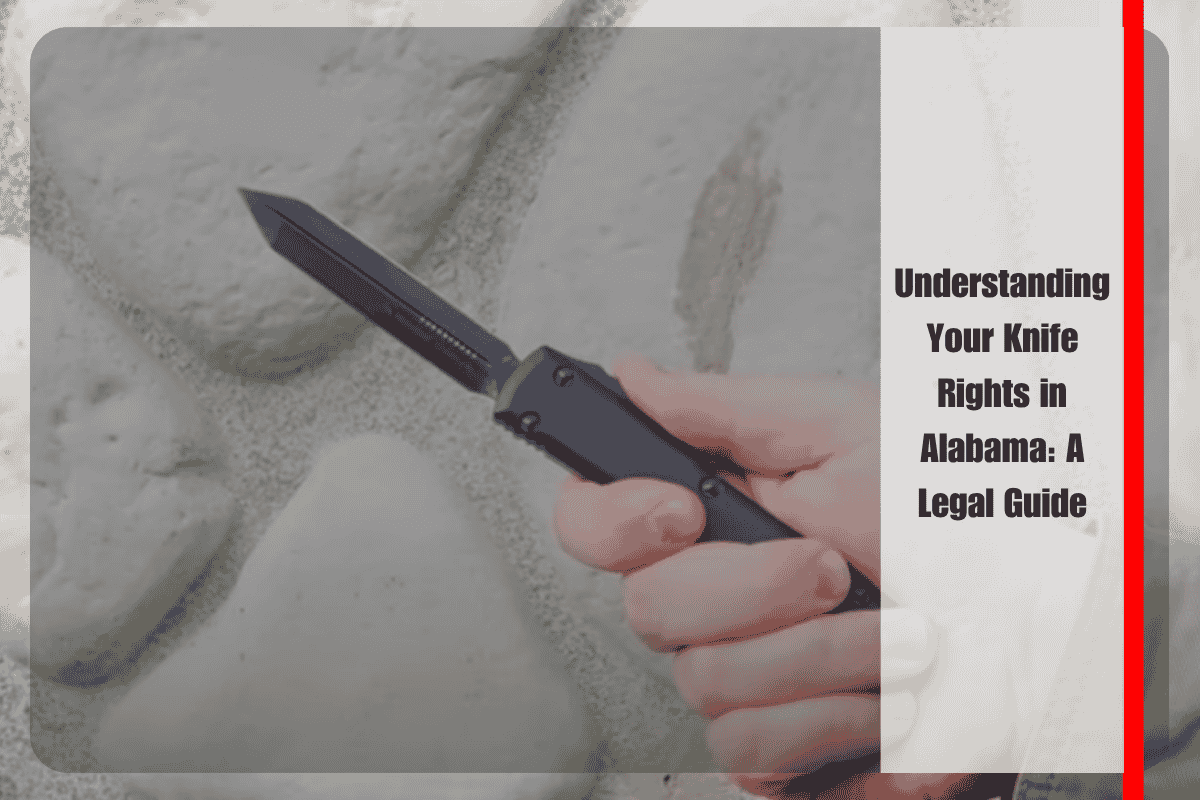Understanding knife rights in Alabama requires a look at the state’s specific laws governing knife ownership, carry, and restrictions. Alabama is known for relatively permissive knife laws, but certain restrictions still exist, especially concerning concealed carry and specific types of knives.
In Alabama, most knives are legal to own. This includes common folding knives, fixed-blade knives, and even more specialized types such as balisongs (butterfly knives), switchblades, gravity knives, stilettos, and daggers. Generally, there is no statewide prohibition on the open carry of knives. However, carrying a knife with the intent to do harm or commit a crime is illegal and can result in criminal charges.
One important restriction is on concealed carry: knives such as bowie knives or daggers cannot be carried concealed. These are considered “deadly weapons” when concealed, and carrying them hidden from view is prohibited under Alabama Code Section 13A-11-50. Despite this, carrying concealed common pocket knives is usually legal unless there is a malicious intent associated with the carry.
The state’s knife laws also regulate knife possession on school grounds. Possessing knives of any kind on school property is forbidden under Alabama law, except where school district policies specifically authorize it, such as for educational purposes. Carrying a deadly weapon, including certain knives, on school property with intent to harm is classified as a felony. This underlines the severity with which Alabama treats weapons in educational settings.
Local municipalities, such as Montgomery, Birmingham, and Mobile, may impose additional restrictions, like blade length limits or requirements about disclosing knife possession to law enforcement, though these vary by city. For example, Montgomery has a three-inch blade limit in certain areas, while Birmingham restricts carrying knives with blades over four inches in public places. Mobile requires disclosure when carrying knives with blades over two inches.
Alabama’s knife laws also reflect exceptions for law enforcement and military personnel regarding carrying knives, both on and off duty, though these are subject to departmental policies.
In terms of sales and transfers, Alabama law prohibits the sale or transfer of bowie knives or similar types to individuals under 18 years of age. Older antique knives, generally those more than 50 years old, are often exempt from many carry restrictions due to their collectible status.
Finally, the state law emphasizes that one’s intent when carrying a knife substantially affects the legality. Carrying a knife for legitimate purposes such as hunting, fishing, camping, or everyday utility is permitted. However, carrying with an intent to commit a crime or harm others can lead to criminal penalties, ranging from fines to imprisonment.
Overall, Alabama’s knife laws balance individual rights to own and carry knives with public safety concerns. While most knives are legal to possess and carry openly, concealed carry restrictions and prohibited locations like schools require careful attention. As legal interpretations and municipal codes can evolve, it’s always recommended to remain informed and consult legal professionals if needed to ensure compliance with current laws in Alabama.
Sources
[1] https://edc.ninja/alabama-knife-laws/
[2] https://nobliecustomknives.com/us-knife-laws/alabama-knife-laws/
[3] https://www.akti.org/state-knife-laws/alabama/
[4] https://www.congress.gov/bill/119th-congress/house-bill/60
[5] https://www.carved.com/blogs/life-at-carved/pocket-knife-rules-laws-by-state












